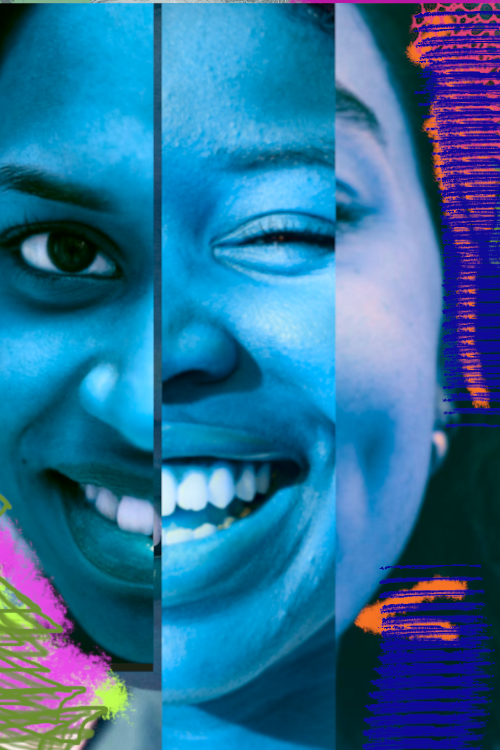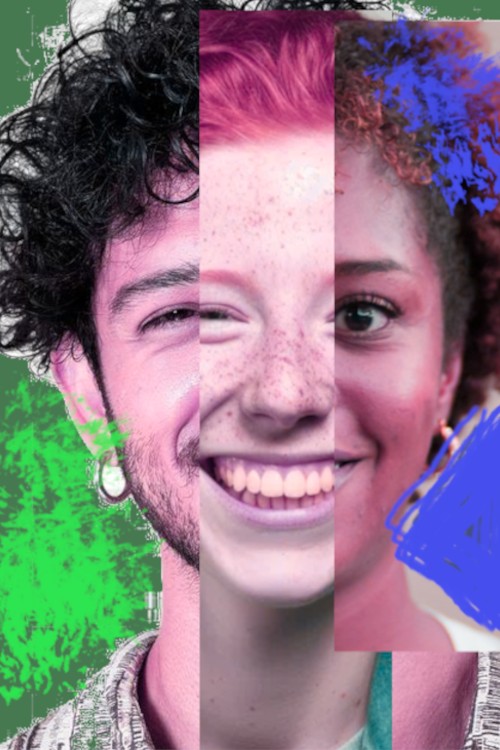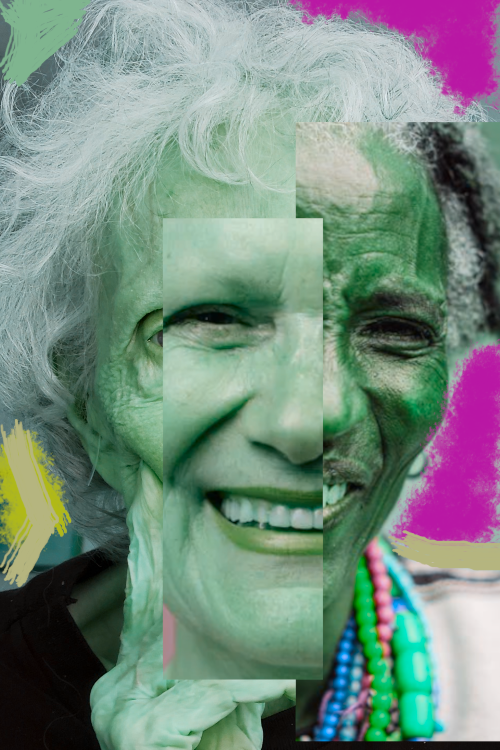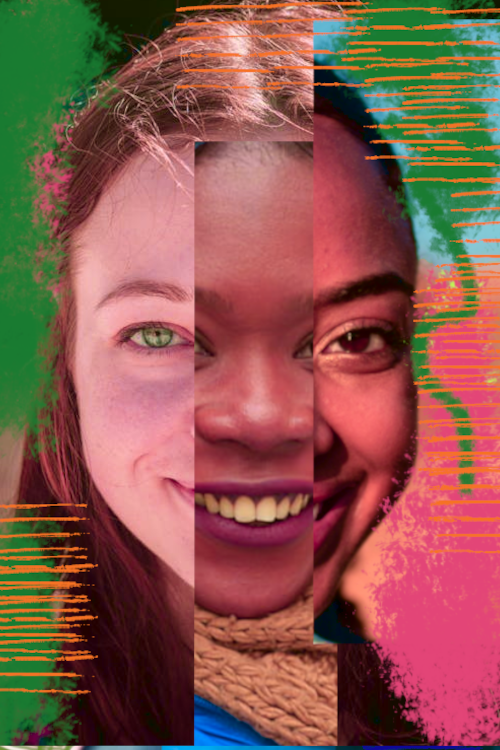‘Free from’ and ‘Free to’
Bodily Autonomy
Bodily autonomy means the freedom to make decisions about our own body, particularly in the areas of sex and sexuality, disability, reproduction, gender, illness, and death. It includes having the right to decide when and how we want to have sex, experience sexual pleasure, and have children. Bodily autonomy concerns who we love as well as how we live and how we die.
Bodily Integrity
Bodily integrity is your right not to have your body interfered with or anything to happen to your body without your knowledge or consent. Examples of violations of bodily integrity include physical and sexual assault or forced sterilization.
These two concepts are interdependent. It’s not possible to have bodily autonomy unless we also have bodily integrity, and it’s not possible to have bodily integrity unless we also have bodily autonomy.
So how are they different?
A good way of thinking about the relationship between Bodily Autonomy and Bodily Integrity is to think of one as being ‘free to…’ and the other as being ‘free from’. So I can’t choose when to have sex if I am in a coercive sexual relationship: to be free to choose when I have sex, I need to be free from sexual coercion.
The free to/free from distinction is also a good way of thinking about our aims as activists and the things we need to fight to meet our aims.
As activists, our aim is to try to make a world where everybody is free to choose.
To do this we fight those things that limit people’s choices (violence, coercion, etc.).
In this activity, you will consider what four people need to be free from in order to be free to choose. This activity should take you about 20 minutes to complete.
Read the stories of the following people who face challenges to do with Bodily Autonomy. After each story, you’ll be asked to select the things that they they need to be free from in order to be free to choose.
Sarah

Sarah is 16 years old. She wants to be free to choose who she has sex with and when she has sex. What does Sarah need to be free from?
Consider the following factors and select the ones you think are most important (clicking them will make them change color).
Sarah needs to be free from the threat of sexual coercion, or violence in order to be free to choose when she has sex and who with. She also needs to be free from gender stereotypes (stereotypes about the ‘proper role’ of boys and girls or men and women) which often dictate the ‘appropriate’ ways in which girls should behave sexually. Sarah also needs to be free from restrictions regarding who she has sex with. If she wishes to have heterosexual sex, she needs to be free from lack of information about contraception, lack of access to contraception, laws banning or limiting contraception or laws banning or limiting abortion access. If Sarah identifies as lesbian or bisexual or wants to have sex with another woman or girl, she needs to be free from the discrimination based on one’s sexual orientation or gender identity and laws that give unequal recognition and protection to same-sex versus heterosexual partners.
Milo
Milo is 43 years old. Milo wants to be free to live in their chosen gender which is not the gender they were assigned at birth. What does Milo need to be free from?

Consider the following factors and select the ones you think are most important (clicking them will make them change color).
Milo needs to be free from laws and policies that prohibit people living in their preferred gender and they need to be free from limitations on access to gender-affirming treatment or care if they need them. Milo also needs to be free the threat of poverty or homelessness from their decision to live in their chosen gender. So this decision must not compromise their educational or employment opportunities. Related to this is the need to be free from the threat of discrimination based on one’s sexual orientation or gender identity and to harmful stereotypes about what being trans means. These are linked to gender stereotypes (stereotypes about the ‘proper role’ of boys and girls or men and women), all of which perpetuate stigma, prejudice and discrimination. Finally, Milo’s choice to live in their chosen gender should not inhibit their right to have children so Milo may need to be free from laws or policies that restrict access to assisted fertility services to particular groups. Finally to have children, Milo needs to be free from lack of affordable childcare, lack of free universal education and child poverty. Likewise, in order to avoid having children, Milo may need to be free from lack of information about contraception, lack of access to contraception, laws banning or limiting contraception and laws banning or limiting abortion access.
Sinéad

Sinéad is a cis woman who has been living with cancer for several years and has had episodes of successful treatment. However, her cancer has now become terminal. She now wants to be free to choose her treatment course, how she wants to live with cancer and when and under what circumstances she wishes to die. What does Sinéad need to be free from to make her choice?
Consider the following factors and select the ones you think are most important (clicking them will make them change color).
To be free to choose how she lives with her cancer, Sinéad needs access to information on her health condition, access to a broad range of health and social care services and she needs not to fear impoverishment through being unwell. She therefore needs to be free from lack of information/disinformation about health, illness and disability, lack of access to appropriate healthcare and social support, lack of access to disability benefits, the threat of poverty or homelessness, and the threat of discrimination based on disability or chronic illness. To be free to live her life to the full and as independently as possible. Sinéad therefore needs (among other things) to be free from lack of access to public transport and lack of decent affordable housing. To be free to choose when and under what circumstances she wishes to die, Sinead needs to be free from harmful social norms about how and when to die and laws banning assisted dying.
Beatrice
Beatrice is 25 year old cis woman. She wants to be free to choose when, and in what circumstances she has children. What does Beatrice need to be free from to make her choice?

Consider the following factors and select the ones you think are most important (clicking them will make them change color).
To be free to choose when and in what circumstances she has children, Beatrice needs to have information about and access to contraception and abortion services. She therefore needs to be free from lack of information/misinformation about contraception, lack of access to contraception, laws banning or limiting contraception and laws banning or limiting abortion access. However, what does Beatrice need in order to have children? Her most basic need is to be able to raise her children securely and with dignity. Although there are always sacrifices to be made with having children, Beatrice needs to know that having children will not draw her and her family into precarity or poverty, that her children will be educated properly and that the state will support her and them properly if she cannot support herself. She therefore needs to be free from lack of affordable childcare, the threat of poverty or homelessness, child poverty and lack of access to appropriate healthcare and social support and other things such as lack of access to public transport and lack of decent affordable housing. Beatrice also needs to know that having children will not compromise her life chances. So, she needs to be free from lack of free universal education while raising her children and after they are raised. Beatrice needs to be free from harmful stereotypes about the ‘proper role’ of boys and girls or men and women (gender stereotypes) which set norms about the ‘right’ time and circumstances to have children. This includes norms around motherhood as well as stereotypes around the ‘proper’ roles of men and women when it comes to reproduction. Finally depending on her gender identity or sexual orientation or indeed whether she encounters difficulties with fertility, Beatrice needs to be free from laws that give unequal recognition and protection to same sex versus heterosexual partners and laws or policies that restrict access to assisted fertility services to particular groups.